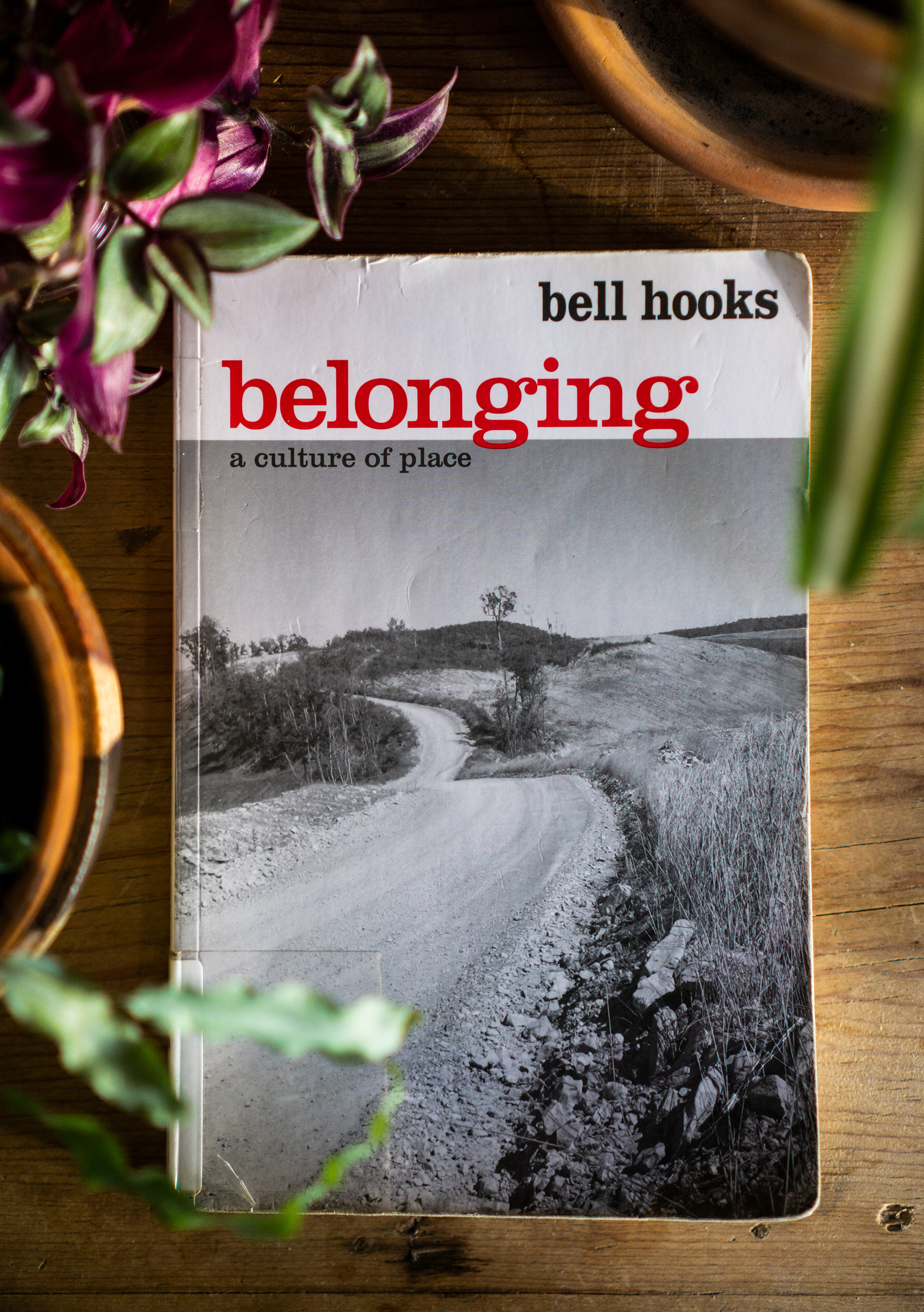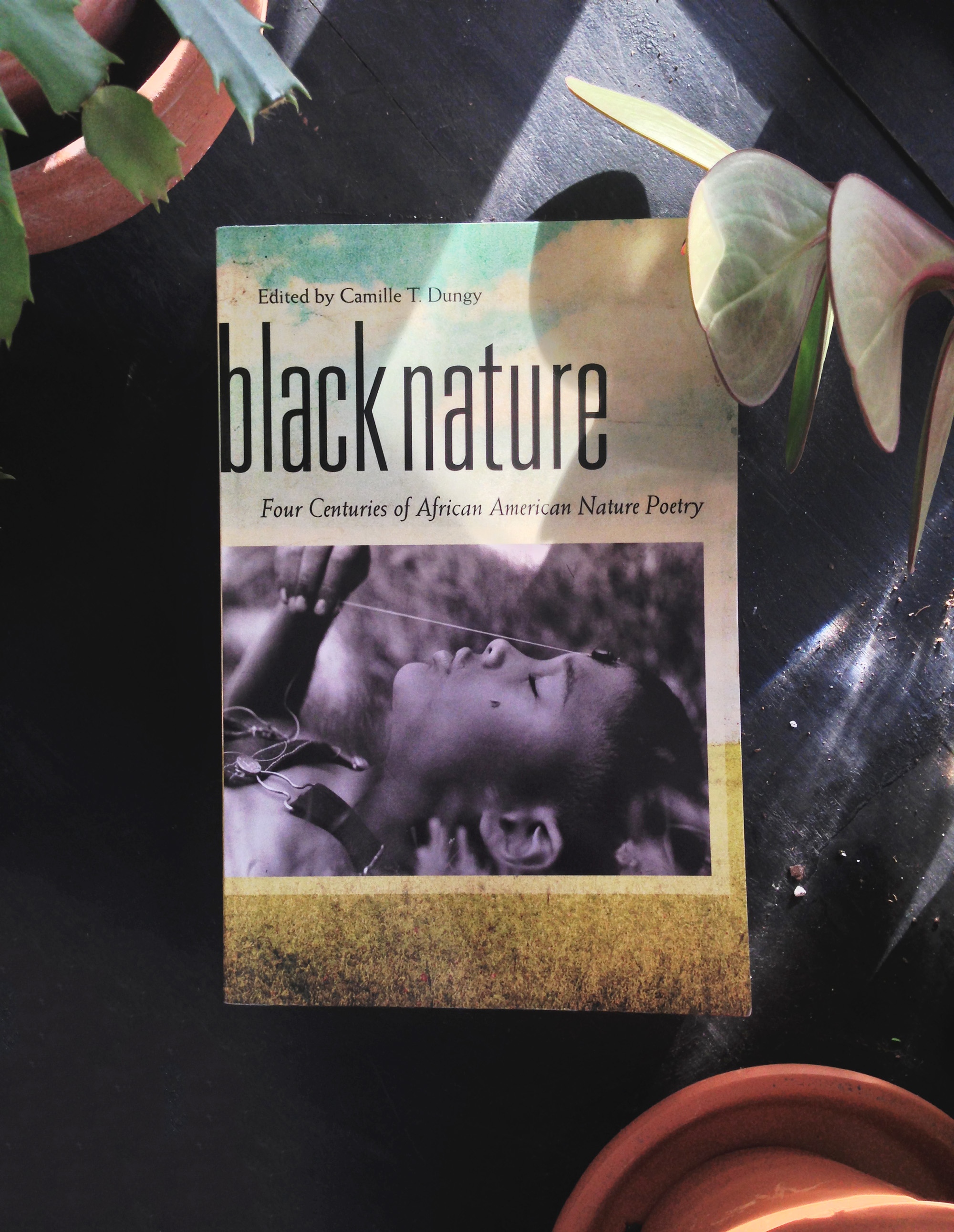Reading: Belonging

Daddy Jerry always tried to get his grandchildren to come out in the pitch dark “to learn the dark” – to learn its comforts and its solace. We can do that and learn to be comfortable in the darkness and beauty of our skin. No one can take that spirit of belonging away.
bell hooks, Belonging: A Culture of Place, from chapter 18, Healing Talk
There are books that wrap you up in another person’s story, immersing you in their new and different world. And there are books that, like a freshly cleaned mirror, reflect your own experience right back at you. From the very first page of the first chapter, “Belonging: A Culture of Place” was my mirror.
Belonging has been a central pursuit in my life since childhood. I felt a connection with the earth from a young age, but felt kept apart from it for many reasons. Not owning a home, not owning any land, living at the whim of landlords and gatekeepers – I learned my place by learning what places were not and never would be mine. As a young adult, I left behind the city where I grew up and started to learn what my new place could be. I’m still on that journey. I’m still in search of the perfect place, the place that welcomes and holds me, the place that remembers with me, the place I can feel at home.
With “Belonging,” bell hooks is telling her story. It’s a non-linear narrative, a series of essays ranging skillfully in topic and tone, but throughout the book she builds her own path toward a fully realized sense of place. Generously, she brings the reader along as she ventures inward, deep into her memories and personal experiences of finding and losing her connection with the world around her. The thread of this book weaves through issues of race, of gender, of environmentalism and self sustenance, of legacy and family, of art and artisanship. hooks swivels effortlessly from autobiography to rich critical theory, and references a diverse group of texts in almost every chapter. Many of my favorite writers are quoted (eg, Toni Morrison and Alice Walker), as well as essayists and critics I was unfamiliar with, but who now have prominent spots on my reading list.
Throughout “Belonging”, you gain an increasingly deep and complex understanding of what the process of returning to oneself looks like. hooks takes us with her, back to Kentucky, the land where she was born, back to the physical places she knew as a young girl, to uncover the elements that together create a sense of belonging. She also introduces us to some of the historic and systemic barriers to belonging – segregation, unchecked capitalist society, white supremacy, and the well known, widely shared, but ultimately false narratives about who we are, the narratives told to us over and over again, both internally and externally.
The most powerful plea hooks makes is for black people to remember their agrarian roots, and to rediscover the ways of knowing that were once central to our personhood, but that we drifted from in the rush to align ourselves with dominant capitalist culture. hooks’s beautifully wrought cultural criticism helped make me aware of my place in that legacy, the legacy of black people being deeply connected to the land, the legacy of being country people, southern people, earth people – the power in maintaining that knowledge of self, and how being separated from that legacy and history is one of the great sources of our generational pain. In speaking about agrarian black folks, hooks asserts “it is my destiny, my fate to remember them, to be one of the voices telling their story.” Reading this book, I realized that my work rests on that same line. That bearing witness to the natural world the way I do brings me closer to the people we were, and to the people we can be.
While reading, I found myself constantly reminded of experiences and thoughts I’d had, fragments of ideas I myself had written, and realizations I’d never been aware of, all laid out before me in a dazzling quilt. hooks is a master of critical theory, and at times I had trouble keeping up with her arguments, but she’s also a master of the personal essay, and has written her life and the lives of her family members so vibrantly that I almost feel as if I know them intimately. Nearly every page of this book left me vocalizing, the generations of black women who live on inside me, acknowledging recognition of themselves and their green lives lived. Nearly every page begs to be quoted, nearly every sentiment needs to be read aloud to whoever will listen.
As soon as I finished “Belonging”, I wanted to pick it back up and start it all over again. I delayed returning my cherished copy to the library, avoiding the calendar like in the days leading up to taking a visiting loved one back to the airport. Reading this book was like an extended therapy session. I felt seen and known. I felt part of a community of thinkers and writers, artists and storytellers, creative and resourceful lovers of the land. With every turned page, I felt the comfort and relief you feel when you come home at the end of the day. I saw the map slowly appear before me, the invisible ink darkening on the page, marking the way toward finding the place I belong.
Buy on Indiebound / Buy on Amazon / Buy on Abe Books

